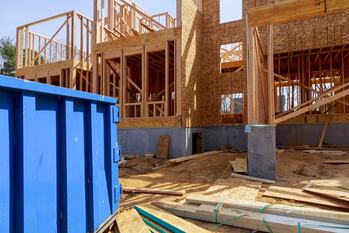 The construction industry is home to tons of waste produced on job sites. In fact, millions of tons of solid waste are generated every year from construction sites alone. The sad thing is, only a third of that waste ends up being composted or recycled. With a massive amount of waste being disposed of, proper waste management has become a key concern in the construction industry. However, with the right waste management practice, it will be possible to reduce, reuse, recycle, and effectively dispose of waste. For that, here are the best waste management practices you want to follow: 1. Reuse materials that are still in good condition Before you throw away all of your construction waste into a dumpster, you might want to check for any reusable materials first. For example, any doors or windows that are still in good condition can be polished to be sold or donated to another project. 2. Make sure to plan ahead of time As a project manager, you’ll be the one responsible for making a building plan before the construction project begins. By planning ahead of time, you’ll be able to minimize any possible mistakes during the construction, thereby leading to less wasted materials. Here are a few pointers to help you: · Perform regular inventory checks to figure out the items that you need and the ones you already have. · Check if you have the right amount of materials and only buy those that you need. · Identify any materials that you can possibly reuse and recycle even before the construction project starts. Also, teach your workers how to sort any waste that can be present during the project. 3. Sort your waste properly Proper waste management involves using an efficient method for sorting waste on your construction site. In order to do so, you want to follow these tips: · Allocate a waste storage area on your construction site. Also, make sure that you place bulk bags or wheelie bins that can accommodate various types of waste. · Assign a team to monitor and manage waste materials. · Teach your workers how to segregate waste properly. If possible, provide them with incentives when they’re able to follow your instructions. 4. Deconstruction over demolition Deconstruction is just an alternative for demolition. As opposed to total demolition, deconstruction will allow you and your construction team to salvage any materials that can be possibly reused. As a result, you’ll be able to massively reduce waste in your job site. These materials could include fixtures, floor tiles, windows, large pieces of wood, etc. Apart from that, deconstruction can also help the environment by significantly reducing the amount of toxic dust that gets released into the air as well as the metal that penetrates the soil during demolition. 5. Check for local recycling services You might want to look into your local recycling services in order to figure out the materials they accept. Ideally, it’s best to look for recycling services that take in mixed debris since it will save you the hassle of sifting through the debris. Also, their rates are often lower compared to landfills. Rent a Dumpster While these waste management practices will allow you to reduce waste on your construction sites, it doesn’t mean that you can completely avoid it. For any waste that you can’t possibly reuse or recycle, renting a dumpster will be your most efficient option. Comments are closed.
|
Fayetteville Dumpster RentalArticles about waste management and Cumberland county designed to make your life easier. Archives
October 2020
Categories |
|
Hours:
Monday-Friday: 9am-7pm Saturday-Sunday: 9am-4pm |
Hours:
Monday-Friday: 9am-7pm Saturday-Sunday: 9am-4pm |
|

 RSS Feed
RSS Feed